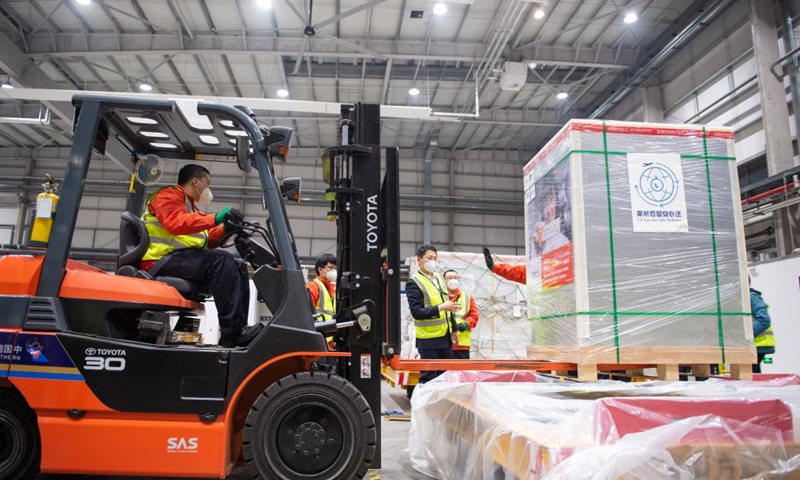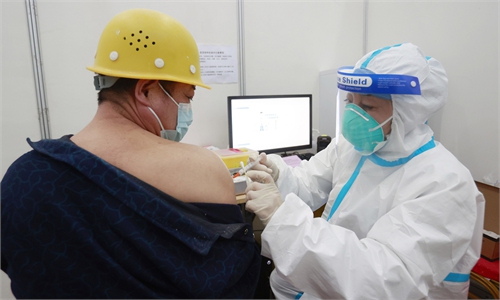
Workers load boxes of Sinovac COVID-19 vaccines onto a pallet at Beijing Daxing International Cargo Terminal of China Southern Airlines in Beijing, capital of China, March 26, 2021. The first chartered international flight with 1.5 million Sinovac COVID-19 vaccines, which was operated by China Southern Airlines, heading for Phnom Penh, Cambodia departed Beijing Daxing International Airport on Friday.Photo:Xinhua
China's capital market should boost investment in core materials and technologies for making vaccines, including lipid nanoparticles (LNP) - which are scarce around the world right now - for making COVID-19 mRNA vaccines, according to the head of the Chinese Center for Disease Control and Prevention (CDC).
Gao Fu, director-general of the Chinese CDC, said at a recent investment forum that there is "zero distance" between basic vaccine research and application, and the capital market should invest in core vaccine technologies and their adjuvant materials.
LNP, for example, a key adjuvant for making mRNA vaccines, should be a focus of the investment world, Gao said, noting that there is a huge demand and China is lagging behind in the area.
In China, the production chain is especially at an early stage, due to its late launch of research and development in the area, compared with countries such as the US and Canada, which hold most of the key LNP patents, according to Gao.
Currently, there are only a few companies that supply LNP for vaccine makers, including Germany-based Evonik and Merck KGaA, and Canada-based Acuita. But Chinese companies including Luye Pharma Group, Stemirna, Cansino and Walvax have also been developing LNP.
Tao Lina, a Shanghai-based expert in medicine and vaccines and a former employee of the Shanghai center for disease prevention and control, told the Global Times on Sunday that China still lags behind the US and Canada in the research and production of LNP, and it would be "very hard" for China to catch up in a year or two without an investment boost.
"The mainstream vaccines in China are inactivated vaccines, adenovirus vector vaccines and recombinant protein vaccines, none of which require the LNP adjuvant," Tao said. "This is why in China, LNP companies are few and the development of LNP is relatively late."
But mRNA vaccines, which do require the LNP adjuvant, are easier to mass produce and can be more effective because they can trigger more intense reactions from the immune system, Tao noted, adding that the successful development and application of LNP will be a good addition to the existing vaccines in China, and might have great market potential.
Global Times

